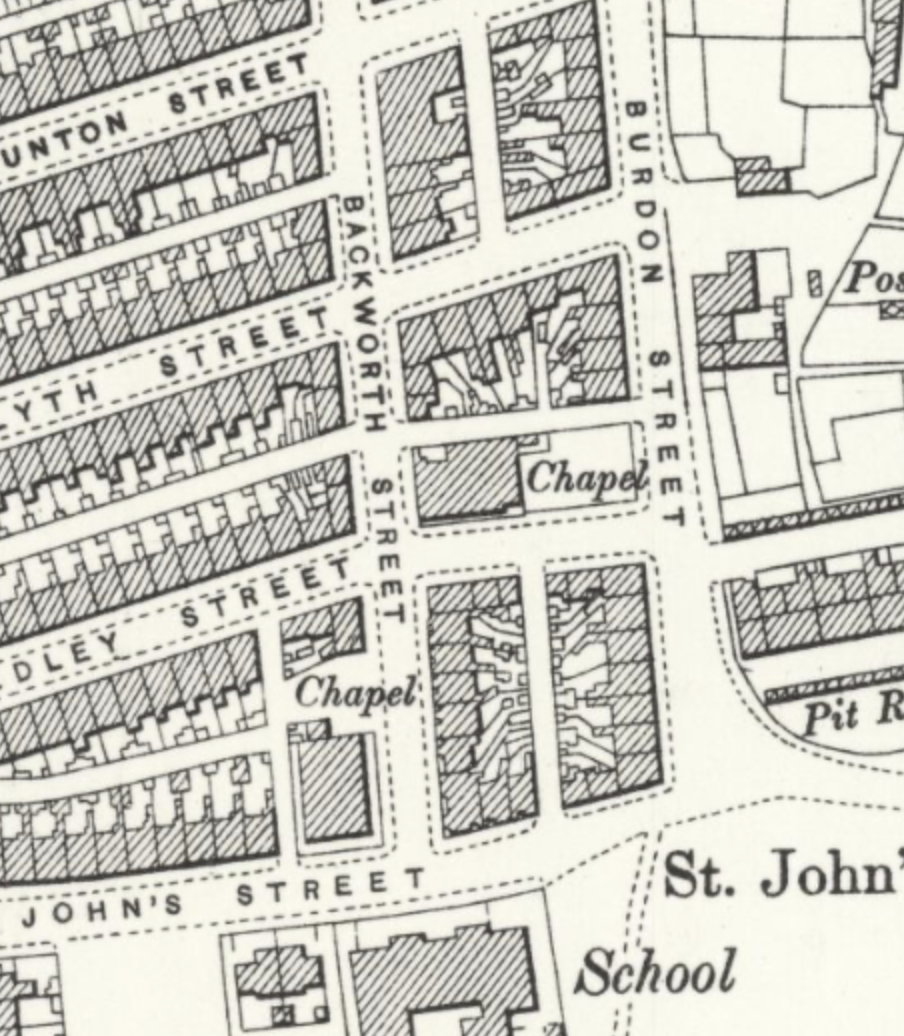3rd April : 6pm
Meeting on Cumberland Street, NE28 6SL (W3W voted.spare.leader) walking to St John
Street, NE29 6JD, (W3W slam.depend.drill). Approx 1.2miles 30mins trip. Short walk to metros to get back to start point.
Journeying God of the lost things
Are they all lost to death? Is it inevitable?
Can death be defied?
Death feeding the very earth providing nutrients
encouraging flourishing
Earthy resurrection divine echoing
watching as we grow encouraging new life
Amen
We have arrived at Palm Sunday. Jesus journeys into Jerusalem on the back of a donkey and the people greet him with songs of praises. There would have been people of all nationalities in the city at that time. Some to worship, and some who may have just come to see the spectacle of it all.
Some Greeks who were there, and had obviously heard about Jesus wanted the opportunity to meet him. They speak to Philip who in turn speaks to Andrew and Philip and they eventually tell Jesus.
The response they get is probably not what they were expecting though. Instead of responding with a yes, bring them over, they get a prediction of his death.
Jesus uses the image of a kernel of wheat needing to fall to the ground and die in order for it to produce more seeds.
Anyone with even a small and basic understanding of gardening will know this to be true.
Plants are designed to reproduce. Many of them do this by making seeds that are either blown by the wind to new places, eaten by birds and dropped elsewhere, or just fall to the ground. These seeds may look dead but in the right conditions they will eventually begin to sprout, take root and grow into a new plant, and the cycle begins again.
This is death and resurrection at work.
Our final few chapels are situated in Willington Quay and Percy Main. Willington Quay had at least two chapels at one time. One was situated on Norman Terrace and was a Primitive Methodist. It opened in 1844 and had 150+ members and a thriving Sunday school according to the census return.
There is record of another Methodist chapel in Willington Quay known as Central Methodist. Some records have this as Primitive and some have it as Wesleyan. We know it closed around 1969 and the building was close to, if not the same one as, Norman Terrace. The chapel was situated where the toll booths for the northbound exit of the Tyne Tunnel are situated.
A note was made in an early publication to the dedication of the members of the chapel who gave up their leisure time to help shift stone from the nearby quarry to build the chapel.
If we move on up to Percy Main we are going to look at two churches, though records suggest there have been five chapels in this small area. The Primitives started in 1821 when William Clowes preached in the village and the first chaple had 18 members. They built a chapel in 1829 which was in use till 1884 when a new one was built on Backworth Street. This second chapel made it to 1902 when a third Primitive chapel was built to seat 300. It was in use till 1974.
The Wesleyans had an early chapel on Middle row which may have been the old Primitive chapel. Eventually they built their own chapel at a cost of £300 in 1884 and this lasted till 1956. In 1956 the Wesleyans joined with the Primitives in their chapel and then in 1976 they joined the local Anglican Church.
Chapels open, chapels close, chapels expand and merge. This is the story of Willington Quay and Percy Main Methodist Chapels. This is the story of North Shields and Whitley Bay Methodist Church and the Methodist Church at large.
Our history is rooted in the stories told this week and in the weeks gone by. It is also rooted in the story of Jesus and his life, death and resurrection.
Seeds have to die in order to produce more.
Questions to reflect on:
1.How would you describe your gardening skills?
2.What is the most magnificent thing you have ever grown? 3.Have you ever had to stop something or lay something down? How easy did you find this? How did it make you feel?
4.Following on from the question above. When you stopped, did it open new doors for you to do new things? 5.What would you stop doing tomorrow if it meant you could achieve your biggest dream in your personal life? 6.Think about your church community and all that it does.
What would you stop tomorrow if it meant you could achieve your church’s dream?
7.Jesus gives us an example of sacrificial love. Giving of himself for others. What would you give up as an individual or as a church in order let God’s work flourish in another place?
Has been a part of BeachcomberFX since his arrival in the North East in 2014. He is well travelled (at least in the UK) having lived in Manchester, Nottingham, Derbyshire, Southport, Doncaster, Berwick and Edinburgh. Supporter of Newcastle United, will watch any sport.
